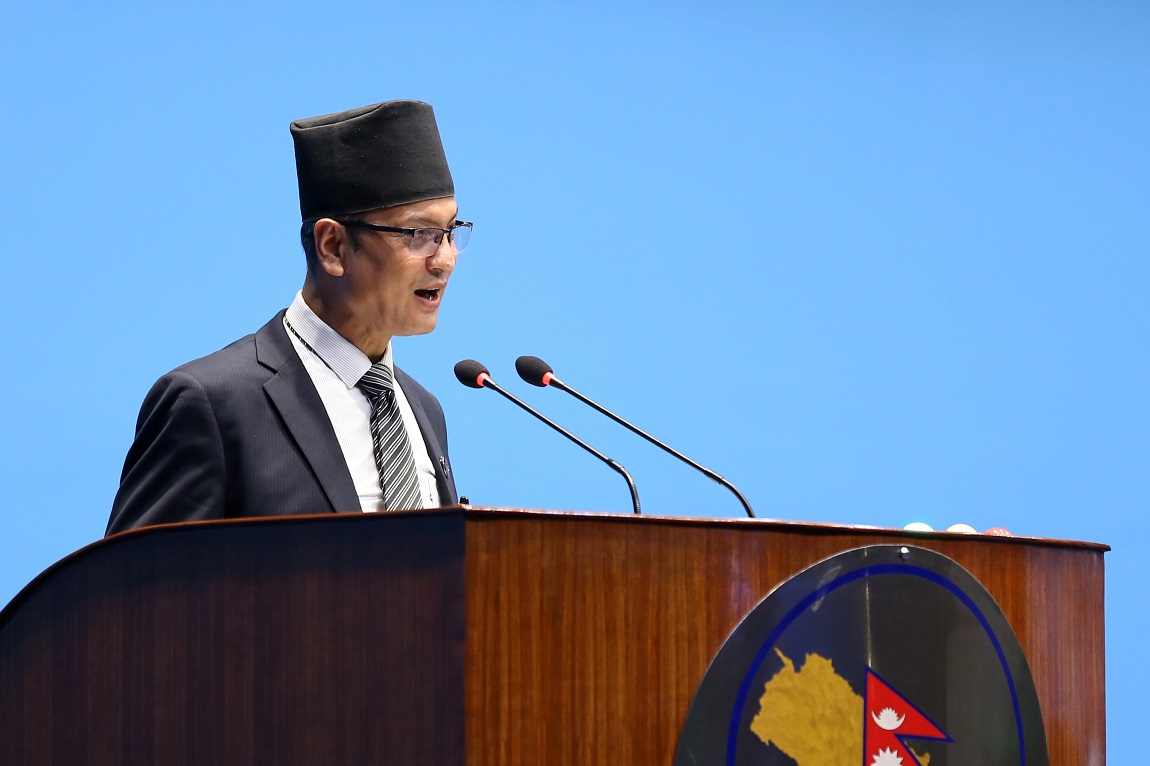The government has moved the bill related to amendment of the act related to Truth and Reconciliation Commission (TRC), and the Commission of Investigation on Enforced Disappeared Persons in the House of Representatives (HoR) despite objections by the National Human Rights Commission (NHRC) and other human rights organizations.
The NHRC had already drawn the government’s attention to amend the act related to transitional justice only after adequate discussion with the victims and stakeholders, and in compliance with the NHRC’s recommendations, Supreme Court (SC) verdicts, and international norms related to transitional justice and human rights.
But Law Minister Govinda Bandi has submitted the bill in the House ignoring all the questions raised about it.
The government has classified human rights violations during the conflict period into two categories in the bill. The bill defines human rights violations as acts targeting unarmed persons or community during the armed conflict or planned actions, and includes murder, sexual violence, physical and mental torture, abduction, extrajudicial custody, thrashing, injuring organs or making disabled, capture and robbery, vandalism and arson of private or public properties, forcibly expelling from house and land, or displacement by any other means, and any act violating international human rights laws as human rights violations.
It similarly includes murder through cruel torture or in a cruel manner, rape, enforced disappearances and cruel or inhuman torture as grave human rights violations.
The current act related to Truth and Reconciliation Commission, and the Commission of Investigation on Enforced Disappeared Persons defines grave human rights violations as murder, abduction, rape and sexual violence, physical and mental torture, injuring organs or making disabled, capture and robbery, vandalism and arson of private properties, forcibly expelling from house and land, or displacement by any other means, or any act violating international human rights laws or crimes against humanity.
The government has classified human rights violations into two categories preparing to pardon human rights violations during the conflict period.
The bill states that the TRC will not recommend for clemency in grave violations of human rights which means it can recommend clemency in all the crimes defined as human rights violations that includes murder, sexual violence, physical and mental torture, abduction, extrajudicial custody, thrashing, injuring organs or making disabled, capture and robbery, vandalism and arson of private or public properties, forcibly expelling from house and land, or displacement by any other means, and any act violating international human rights laws.
Human rights activists and legal professionals have protested inclusion of even grave violations in human rights violations that can be recommended for pardon.
“No case will move forward as per this bill. The first thing is the bill considers even grave human rights violations as mere human rights violations. Almost all the incidents, therefore, will move toward reconciliation and pardon. Even murder is included as normal human rights violations. Torture, sexual violence, and making disabled have also been made pardonable,” advocate Om Prakash Aryal states.
He adds that cases cannot be moved forward even in the incidents defined as grave human rights violations by the bill pointing that the statute of limitations of existing laws may be attracted even in inhuman murder or cruel torture. “Torture should have been made punishable by retrospective law. But deadline has not been defined in enforced disappearances, rape and other grave crimes. There seems to be obstruction in prosecution of any case.”
He points that the provision requiring registration of case by the TRC within six months will also create problems. “It says case will have to be filed in six months even though the investigation by the TRC is not criminal investigation. The bill does not have provision for another investigation,” he explains. “There may be lack of criminal investigation even if the TRC were to investigate and ask to register case in incidents of cruel murder. The case cannot be filed in that case if criminal investigation is not ordered. The bill authorizes the attorney general to decide whether to lodge case or not. But the attorney general can create file only after file about criminal investigation is created. There is this gap on the issue of investigation. There can also be expiry of deadline as a six-month deadline has been defined.”
The bill also proposes formation of a special court including High Court judges in consultation with the Judicial Council to decide cases related to human rights violations during the conflict period. It states that the verdict by the special court to be final and cannot be appealed.
It also prohibits punishment against any individual if that individual has already been punished by another court in accordance to the laws of the land. It also instructs the special court so formed to reduce quantum of punishment from the prevailing laws on the cases related to conflict period, but does not specify the proportion of reduction.
Aryal argues that not specifying what the reduced punishment will be can effectively lead to letting the guilty off after imposing a meager fine or a jail term of just one day.
He accuses the current government, which includes both those who were in the government during the conflict period and the then Maoist rebels, of engineering the bill in a way that there is impunity in the conflict period incidents.

